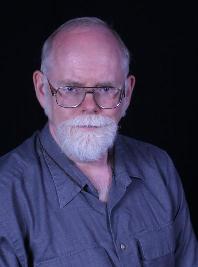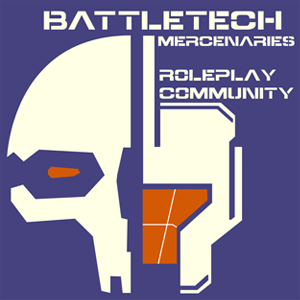Difference between revisions of "William H. Keith, Jr."
(imported) |
m (→BattleTech) |
||
| (14 intermediate revisions by 6 users not shown) | |||
| Line 1: | Line 1: | ||
| − | + | {{InfoBoxRealPerson | |
| + | | image = WilliamHKeithJr.jpg | ||
| + | | image caption = | ||
| + | | name = | ||
| + | | birthdate = 8 August 1950 | ||
| + | | died = | ||
| + | | Occupation = Author | ||
| + | | penname = (various) | ||
| + | | Sarnaname = | ||
| + | | Forumhandle = | ||
| + | | BTPersona = | ||
| + | | homepage = http://whkeith.com/home-page.html | ||
| + | }} | ||
| − | + | '''William H. "Bill" Keith, Jr.''' (born August 8, 1950) is an author, illustrator and game designer who has been writing for and working on a multitude of wargaming and science fiction settings. He was one of the earliest authors to flesh out the [[BattleTech]] universe, having written three out of the first four BattleTech novels published plus additional content for the ''[[Shrapnel (anthology)|Shrapnel]]'' anthology and ''[[BattleTechnology]]'' magazine. | |
| − | + | ==Personal history== | |
| + | William H. Keith grew up in the wooded mountains of western Pennsylvania. He joined the Navy and served as a hospital corpsman during the Vietnam era, then worked in the civilian medical field. | ||
| − | Keith | + | Keith has been writing for BattleTech under his real name. He also writes under various pseudonyms and "house names", including Bill Keith, Keith William Andrews, Robert Cain, Keith Douglass, Ian Douglas and H. Jay Riker, and was the ghostwriter of several books "by" celebrities. |
| − | Keith, a Wiccan and a Reiki master, is also a member of Western Pennsylvania Mensa. | + | Keith's first nonfiction book, ''The Science of the Craft'', was published in 2005. It is about the link between witchcraft and science. Keith, a Wiccan and a Reiki master, is also a member of Western Pennsylvania Mensa. |
| + | ===BattleTech=== | ||
| + | With his brother [[J. Andrew Keith]], with whom he would coauthor some of his works, he went to work for [[FASA]] in 1980 and became a full-time writer in 1984, after having worked as freelancer since about 1979. William Keith's 1984 novel ''[[Decision at Thunder Rift]]'' was not only the first BattleTech novel, but the first novel ever published by FASA. (''[[The Sword and the Dagger]]'' was commissioned earlier, but it took longer to write as [[Ardath Mayhar]] only took over the writing contract after the initial authors backed out of the deal, and it thus became the second BattleTech novel to be published.) | ||
| + | |||
| + | Keith's work was a significant part in the formative early years of BattleTech Besides the [[Gray Death trilogy]] that comprises three out of the first four novels in the setting, he was also an editor and prolific contributor to the [[BattleTechnology]] magazine. | ||
| + | |||
| + | Notable units and characters introduced by Keith include the [[Gray Death Legion]] and its personnel, particularly [[Grayson Carlyle]] and [[Lori Kalmar]]. | ||
| + | |||
| + | Reportedly, Keith's idea for the Gray Death Legion had been to participate in [[Operation Serpent]], but despite being victorious the carnage would have made Grayson Carlyle literally walk off in disgust, never to be seen again. [[Thomas S. Gressman|Another author]] would write a different canon ending for the unit, where Carlyle died from cancer and old battle wounds and his unit was subsequently vanquished in combat after once again being betrayed by their employer. | ||
| + | |||
| + | Keith didn’t write for BattleTech again until ''[[Starfire (short story)|Starfire]]'', a short story published in the 2009 ''[[BattleTech: 25 Years of Art & Fiction]]'' tome. He has since returned and written more Gray Death Legion stories, including prequel stories of [[Colby's Commandos]]''. | ||
| + | |||
| + | ==See also== | ||
| + | * [[:Category:Works by William H. Keith, Jr.|Works by William H. Keith, Jr.]] on BattleTechWiki | ||
==External links== | ==External links== | ||
| − | *[http:// | + | * [http://whkeith.com The Website of William H. Keith, Jr.] |
| − | + | ||
| + | ==References== | ||
| + | <references /> | ||
| + | |||
| − | [[Category:PeopleReal]] | + | [[Category:Authors|Keith, William]] |
| + | [[Category:PeopleReal|Keith, William]] | ||
Latest revision as of 07:29, 21 May 2024

| |
| William H. Keith, Jr. | |
|---|---|
| Born | 8 August 1950 |
| Occupation | Author |
| Alias name(s) | (various) |
| Homepage | http://whkeith.com/home-page.html |
William H. "Bill" Keith, Jr. (born August 8, 1950) is an author, illustrator and game designer who has been writing for and working on a multitude of wargaming and science fiction settings. He was one of the earliest authors to flesh out the BattleTech universe, having written three out of the first four BattleTech novels published plus additional content for the Shrapnel anthology and BattleTechnology magazine.
Personal history[edit]
William H. Keith grew up in the wooded mountains of western Pennsylvania. He joined the Navy and served as a hospital corpsman during the Vietnam era, then worked in the civilian medical field.
Keith has been writing for BattleTech under his real name. He also writes under various pseudonyms and "house names", including Bill Keith, Keith William Andrews, Robert Cain, Keith Douglass, Ian Douglas and H. Jay Riker, and was the ghostwriter of several books "by" celebrities.
Keith's first nonfiction book, The Science of the Craft, was published in 2005. It is about the link between witchcraft and science. Keith, a Wiccan and a Reiki master, is also a member of Western Pennsylvania Mensa.
BattleTech[edit]
With his brother J. Andrew Keith, with whom he would coauthor some of his works, he went to work for FASA in 1980 and became a full-time writer in 1984, after having worked as freelancer since about 1979. William Keith's 1984 novel Decision at Thunder Rift was not only the first BattleTech novel, but the first novel ever published by FASA. (The Sword and the Dagger was commissioned earlier, but it took longer to write as Ardath Mayhar only took over the writing contract after the initial authors backed out of the deal, and it thus became the second BattleTech novel to be published.)
Keith's work was a significant part in the formative early years of BattleTech Besides the Gray Death trilogy that comprises three out of the first four novels in the setting, he was also an editor and prolific contributor to the BattleTechnology magazine.
Notable units and characters introduced by Keith include the Gray Death Legion and its personnel, particularly Grayson Carlyle and Lori Kalmar.
Reportedly, Keith's idea for the Gray Death Legion had been to participate in Operation Serpent, but despite being victorious the carnage would have made Grayson Carlyle literally walk off in disgust, never to be seen again. Another author would write a different canon ending for the unit, where Carlyle died from cancer and old battle wounds and his unit was subsequently vanquished in combat after once again being betrayed by their employer.
Keith didn’t write for BattleTech again until Starfire, a short story published in the 2009 BattleTech: 25 Years of Art & Fiction tome. He has since returned and written more Gray Death Legion stories, including prequel stories of Colby's Commandos.
See also[edit]
- Works by William H. Keith, Jr. on BattleTechWiki


